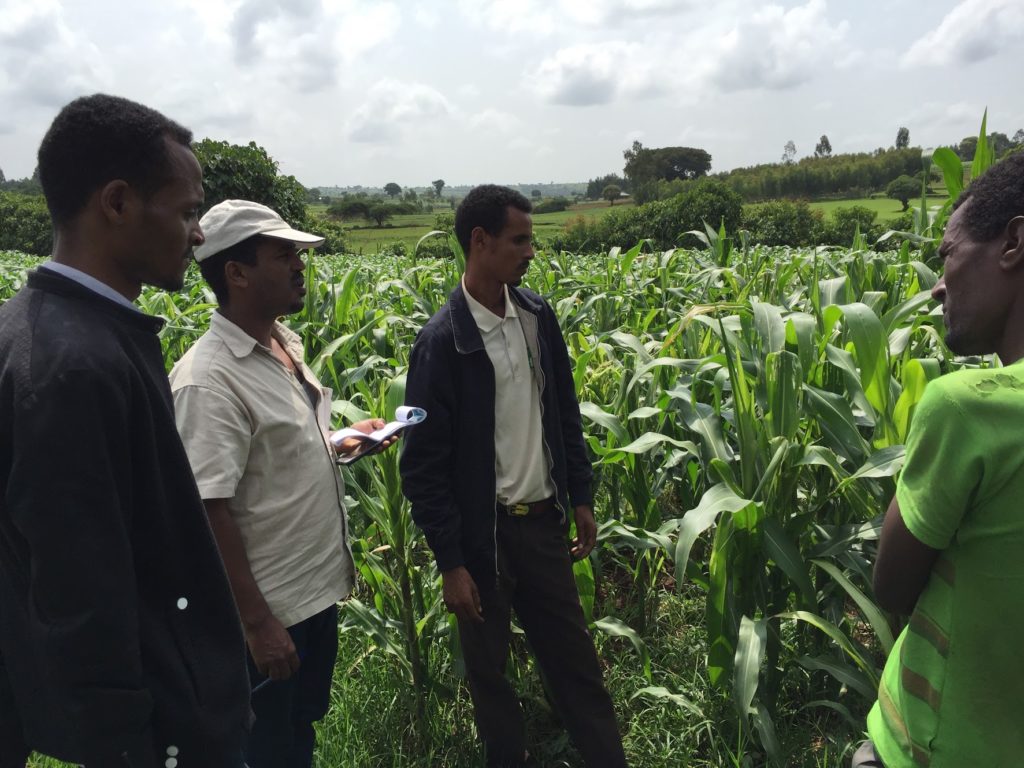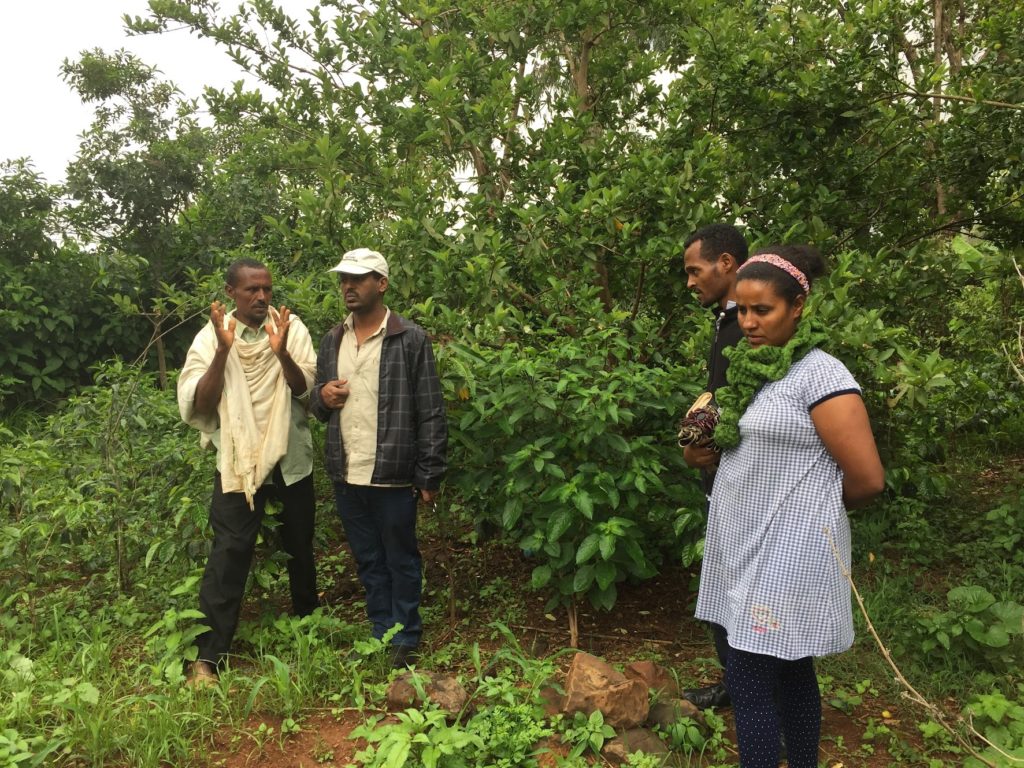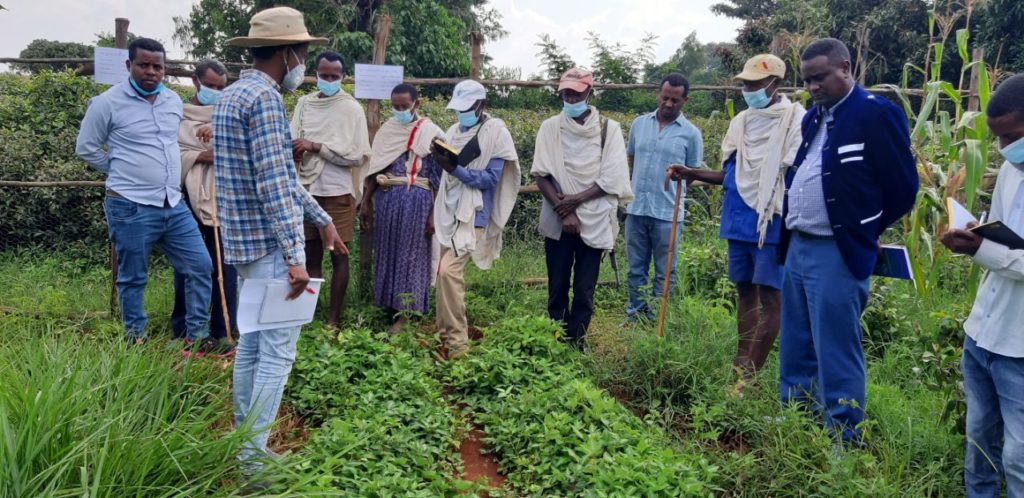Longtime Innovation Lab for Small Scale Irrigation research partner, Dr. Seifu Admassu Tilahun, recently joined the ILSSI team on campus at Texas A&M University, where he is on sabbatical from his position as Associate Professor of Hydrology, Faculty of Civil and Water Resources Engineering in the Bahir Dar Institute of Technology at Bahir Dar University (BDU) in Ethiopia. The Bahir Dar Insititute of Technology (BiT) is among the oldest and most well-known technology institutes in Ethiopia, where their goal is to work towards solving practical problems for the community by providing courses with ample experience in teaching, research and community service.


Through the United State Agency for International Development’s (USAID) Feed the Future program, Dr. Tilahun has collaborated with the ILSSI team for nearly 10 years, collecting data on small scale irrigation in the Blue Nile Basin to improve access to irrigation practices that directly affect the lives of farmers and their families while also contributing to the growth of the graduate program at BDU. He has co-authored several papers in collaboration with ILSSI and Texas A & M researchers, including on the Blue Nile, hydrological modelling methods and soil and water conservation in the Ethiopian highlands, adding to his accomplished publishing record. According to Dr. Tilahun, the BiT graduate programs are thriving with increased program diversity that includes 38 masters degree programs including Engineering Hydrology, Hydraulic Engineering, Water Resources Engineering and Management, and a Master of Science in Irrigation Engineering and Management, as well as 26 Ph.D. Programs including Water Resources Engineering and Management. Dr. Tilahun noted that work with ILSSI has provided a tangible contribution to the graduate programs, providing funding and opportunities for graduate student research, and he credits the development of master’s and Ph.D. programs in irrigation to this partnership. With emerging research topics in artificial intelligence and machine learning technologies, he expects continued opportunities for growth at BiT.
Further, Dr. Tilahun acknowledges his students’ hard work and shared that capacity building of individuals within the graduate program has been his most fulfilling work over this last ten years. He explained that ILSSI funded opportunities for research in the field and engagement with the private sector has provided a unique experience for more than 40 students to gain practical skills in small scale irrigation like working with farmers on their agricultural land, measuring biophysical parameters of soil and plants, measuring precipitation, surface runoff, ground water levels and quality. Regarding this work he said, “I am proud of it because all the investment goes to the students.”

Recently, a select group of BiT students competed in a Hack-a-Thon organized by the International Water Management Institute (IWMI) under the ILSSI project at the Seifu Maker Space, aptly named after Dr Tilahun who served as initiator and advocate for its creation with support from the Centre for Global Equality. The Hack-a-Thon included 6 teams with about 30 members whose goal was to identify and solve a challenge faced by local farmers and private companies. Innovative student groups proposed creative and practical solutions like a digital app that benefits both private sector companies and farmers by streamlining sales processes, simplifying product management, and improving access to customer support services. One Hack-a-Thon winner, Dayan Yenesew shared that the challenge opened many doors and changed the way she approached problems by putting the theoretical ideas she learned over the previous five years to use tackling real-world problems facing farmers and businesses.
Dr. Tilahun’s praised the students’ success saying, “I think we saw their potential. I mean, If the students get a chance, they can really give a solution. Even the private companies, they were surprised that from the university some kind of solution can be obtained. It was special.” He added, “Private companies never, never thought about working with students at the university.”
During his time on sabbatical, Dr. Tilahun plans to take the opportunity to continue his work related to small scale irrigation and recognizes that irrigation is still just emerging as a practice in Ethiopia. He noted that there is much potential but also many challenges the country will face as irrigation practices expand. Currently, details of small scale irrigation practices, like specifics of how and when to implement agrochemical use, are being done at random and without any regulation. With continued irrigation expansion, this could cause future ecological risks to water quality and water scarcity. As the government plans for more land to be irrigated, research on best management practices and appropriate water resources planning should start immediately so that effective practices can be implemented in the near future.


